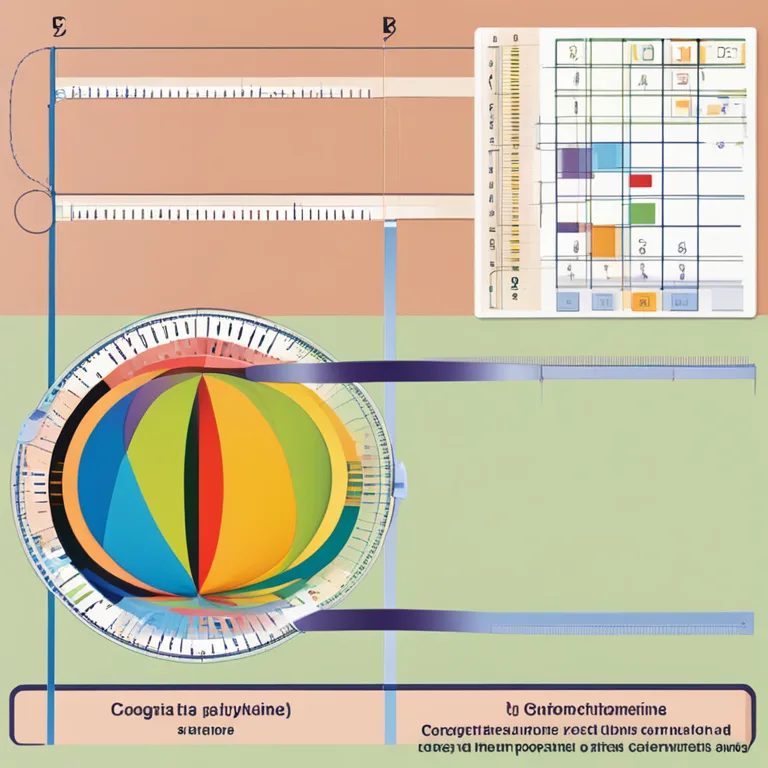
The Influence of Biorhythms on Psychological Well-Being
Delve into the intricate connections between biorhythms and psychological health, and discover the role of innate physiological cycles in shaping our emotional and cognitive landscapes.
article by Adrian Wallace
The Concept of Biorhythms
Since their popularization in the early 20th century, biorhythms have intrigued scientists and psychologists alike. Originating from the idea that human life is influenced by natural, rhythmic biological cycles, biorhythms purportedly govern the physical, emotional, and intellectual facets of our existence. Unlike astrological claims, biorhythms do not rely on celestial bodies, but on patterns intrinsic to our biology. The theory suggests that understanding and adhering to these cycles can enhance personal effectiveness and overall mental health. While empirical backing remains elusive, the psychological community continues to explore the potential correlations between biorhythms and our daily lives.

Physical Biorhythms and Mental Health
The physical biorhythm, approximately a 23-day cycle, is believed to influence aspects such as physical endurance, stamina, and strength. Its implications in psychological well-being are considered significant, as it might affect energy levels and the potential for stress management. A day where one's physical biorhythm is peaking could correlate with both elevated physiological performance and a heightened capacity for coping with psychological stressors. Conversely, during a physical low, individuals may be more vulnerable to stress and less likely to engage in uplifting physical activity, potentially impacting their mood and anxiety levels.

Emotional Biorhythms and Affective States
Possibly the most intriguing for psychologists is the emotional biorhythm, with its alleged 28-day cycle akin to lunar patterns. This cycle is thought to influence our affective states, creativity, and interpersonal relationships. Individuals tracking their emotional biorhythms might notice periods of heightened empathy and emotional awareness, as well as times marked by irritability or moodiness. While some skeptics view this as pseudoscience, others believe that acknowledging the rhythm can help to predict and manage emotional fluctuations, potentially benefiting therapeutic or personal growth processes.

Intellectual Biorhythms and Cognitive Functions
The 33-day intellectual biorhythm is hypothesized to shape our cognitive abilities, logical reasoning, and mental acuity. As one traverses through the high and low points of this cycle, variations in learning capacity, memory retention, and problem-solving skills may become apparent. Psychologists interested in cognitive rhythms might leverage this concept to schedule intellectually demanding tasks or learning opportunities at optimal times, paralleling the way athletes plan training cycles around physical peaks.

Biorhythms in Clinical Psychology
In the realm of clinical psychology, an awareness of biorhythms could offer an additional lens through which to understand patient behavior and symptomatology. For instance, a clinician might consider a client's physical and emotional cycles when diagnosing mood disorders or recommending behavioral interventions. It's a developing area, with proponents advocating for biorhythm-compatible therapy sessions, which would align treatment approaches with the client's physiological ebb and flow to maximize efficacy.
Integrative Perspective and Future Research
Despite the lack of robust scientific evidence, the concept of biorhythms remains a topical subject in holistic wellness circles. Future psychological research could benefit from integrating biorhythmic perspectives with established psychological wisdom, potentially unraveling new understandings of how internal rhythms interact with external influences. Such interdisciplinary inquiry might shed light on how to harness these cyclic patterns for improved mental health outcomes in a society ever more focused on personal optimization and self-awareness.
Published: 12/28/2023
Modified: 12/28/2023
More predictions
Come back here soon to learn more about yourself and your future


The Concept of Biorhythm Compatibility
Discover the concept of biorhythm compatibility and its role in personal relationships in this comprehensive guide.


The Core of Biorhythm Theory
Delve into the core of biorhythm theory, a concept that suggests our daily lives are influenced by natural physiological cycles.


The Rhythms of Life: Delving into Biorhythm
Discover how biorhythm cycles influence your physical, emotional, and intellectual wellbeing, and how to track these patterns for optimal living.